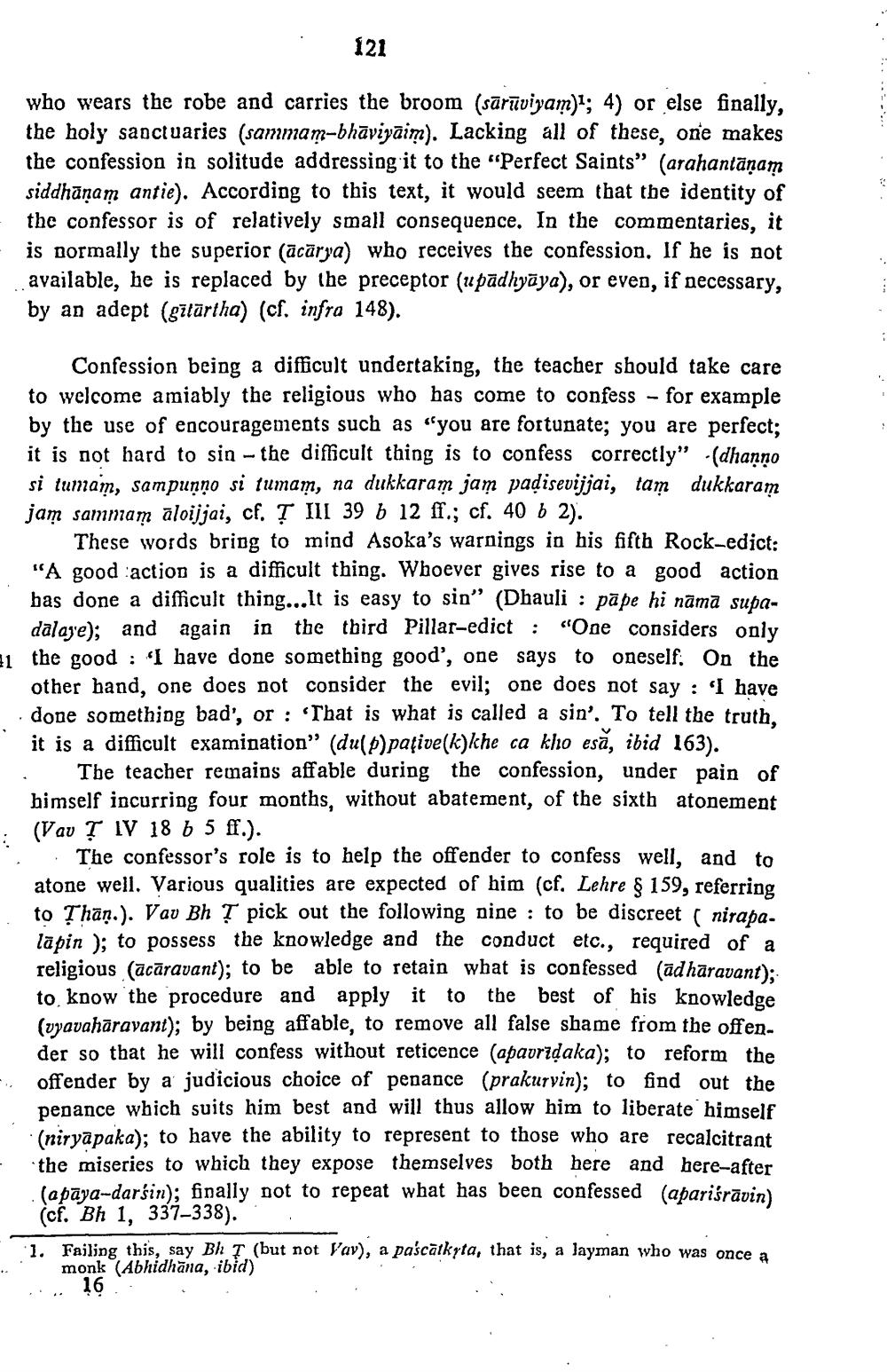________________
121
who wears the robe and carries the broom (sārīviyam)"; 4) or else finally, the holy sanctuaries (sammam-bhaviyāim). Lacking all of these, one makes the confession in solitude addressing it to the "Perfect Saints” (arahantānam siddhānam antie). According to this text, it would seem that the identity of the confessor is of relatively small consequence. In the commentaries, it is normally the superior (ācārya) who receives the confession. If he is not available, he is replaced by the preceptor (upadhyāya), or even, if necessary, by an adept (gītārtha) (cf. infra 148).
Th
Confession being a difficult undertaking, the teacher should take care to welcome amiably the religious who has come to confess - for example by the use of encouragements such as you are fortunate; you are perfect; it is not hard to sin - the difficult thing is to confess correctly" · (dhanno si tumam, sampunno si tumam, na dukkaram jam padisevijjai, tam dukkaram jam sammam aloijjai, cf. Ţ III 39 b 12 ff.; cf. 40 b 2).
These words bring to mind Asoka's warnings in his fifth Rock-edict: "A good action is a difficult thing. Whoever gives rise to a good action bas done a difficult thing...It is easy to sin" (Dhauli : pāpe hi nāma supa
dalaye); and again in the tbird Pillar-edict : "One considers only 21 the good : 'I have done something good', one says to oneself. On the
other hand, one does not consider the evil; one does not say : 'I have done something bad', or : That is what is called a sin’. To tell the truth. it is a difficult examination” (du(e) pațive(k)khe ca kho esă, ibid 163). · The teacher remains affable during the confession, under pain of himself incurring four months, without abatement, of the sixth atonement (Vav T IV 18 b 5 ff.).
The confessor's role is to help the offender to confess well, and to atone well. Various qualities are expected of him (cf. Lehre § 159, referring to Țhan.). Vav Bh ? pick out the following nine : to be discreet ( nirapa. lapin ); to possess the knowledge and the conduct etc., required of a religious (acāravant); to be able to retain what is confessed (adhāravant): to know the procedure and apply it to the best of his knowledge (vyavahāravant); by being affable, to remove all false shame from the offen. der so that he will confess without reticence (apavridaka); to reform the offender by a judicious choice of penance (prakurvin); to find out the penance which suits him best and will thus allow him to liberate himself (niryapaka); to have the ability to represent to those who are recalcitrant the miseries to which they expose themselves both here and here-after (apāya-darsin); finally not to repeat what has been confessed (aparisrāvin) (cf. Bh 1, 337–338).
1. Failing this, say Bh ? (but not l'av), a pascatkyta, that is, a layman who was once a
monk (Abhidhāna, ibid) . .. 16.




